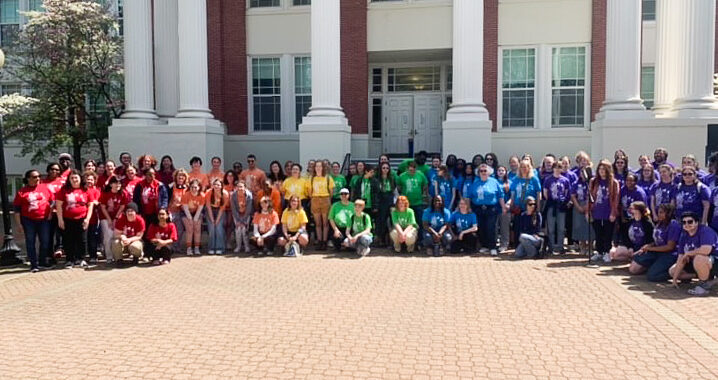Political clubs at UMW prepare for November midterm elections
4 min read
Creative Commons
By EMILY SHUMAKER
Staff Writer
On the verge of the halfway mark of Donald Trump’s presidency, in the wake of the allegations surrounding Kavanaugh and as an unprecedented number of Democratic women have decided to run for Congress, on Nov. 6, 2018, the United States of America will hold its midterm elections.
There will be 435 House seats, 33 Senate seats and 6,665 state positions up for reelection. Thirty-six states will elect governors this year.
Midterm elections have the potential to completely change the political landscape.
“One of the things we know… is that by and large… the party of the president does worse in midterm elections, so if we’re looking at presidential elections, whoever gets elected in that cycle, his party will do worse the next election out, when the president is not on the ballot. And that is likely to be the same again,” said Dr. Rosalyn Cooperman, associate professor of political science.
Political scientists anticipate more Democrats to be elected to the House and Senate this year, but whether it will be enough to flip the majority is still uncertain.
“I hesitate to make specific predictions, but I know that this is an opportunity people across the nation have been waiting for and working towards since November 9, 2016, and that there is a great amount of energy and enthusiasm,” said Shawyna Peterson, senior English and history double major and the president of Young Democrats.
There are a record-breaking 257 women up for the House and Senate seats this election.
“Other years have been called the ‘Year of the Woman.’ 1992 was the ‘Year of the Woman.’ What that meant is that you had political conditions that were favorable to really encourage women to run,” said Cooperman. “One of the things that we see very much is that this is a year in which an unprecedented number of women have thrown their hat in the ring to run. Again, it’s not just all women. It’s overwhelmingly Democratic women.”
According to Cooperman, “political scientists are going to be paying very close attention to who is incentivized to vote and who is not in terms of the current events going on right now.”
Senior political science major and Chair of UMW’s College Republicans, Stephen Lamm, agreed. “I believe that the sexual assault allegations against Judge Kavanaugh will be inspiring both Democrats and Republicans to get out and vote,” he said. “There is almost no middle ground on this issue, so I think that both sides are energized by these past few weeks.”
“I know that the Kavanaugh nomination is making some voters more motivated to get involved, but I also know that many have been left feeling powerless and worn down. It all depends on how people choose to channel their emotions,” Peterson said.
In light of midterms, UMW’s College Republicans will gather with over 100 College Republicans from across the Commonwealth at the annual Deployment event hosted by the College Republican Federation of Virginia on Oct. 27. Attendees will knock on doors for Representative of the First District, Rob Wittman. Meanwhile, they are also door knocking in the local vicinity of Fredericksburg.
“With the midterms coming up, we do talk about what our prospects are, and what the future may look like. We still talk about current events, but they are more focused on the elections coming up and how we can help Republicans win,” Lamm said.
UMW Young Democrats are also focused on the local elections, particularly the Rob Wittman/Vangie Williams race.
“We all care about our positions as young people in Fredericksburg and the First District, and we want to make sure that we are represented by politicians that care about issues facing students and young people,” Peterson said.
Midterm elections are not historically known to produce a great voter turnout. In contrast with a 60% turnout for the presidential election, midterm elections only elicit about 37% of the population at the voting booths, according to the New York Times.
“Most people don’t vote in the midterm, and that is particularly true with college students,” Cooperman said. “There are barriers that may make students say ‘I’m going to sit this one out.”’
“Voting is a civic right and civic duty, so it is crucial that our generation’s qualms are heard, regardless of political orientation. Our republican democracy can only work when everyone is involved in the process,” Lamm said.
“The act of registering to vote is not a political or partisan act,” Cooperman said. “It is afforded to you as an active citizen.”
“I think it’s important that if you want your opinion to be heard, that you do it through a political system, which is voting,” said Anna Krus, a senior international affairs major. “I think it shouldn’t be about parties, it should be about electing someone who represents you.”
“All of us deserve a voice, and a disagreement does not need to turn into an argument. Disagreement deserves a discussion instead.” Lamm said.











